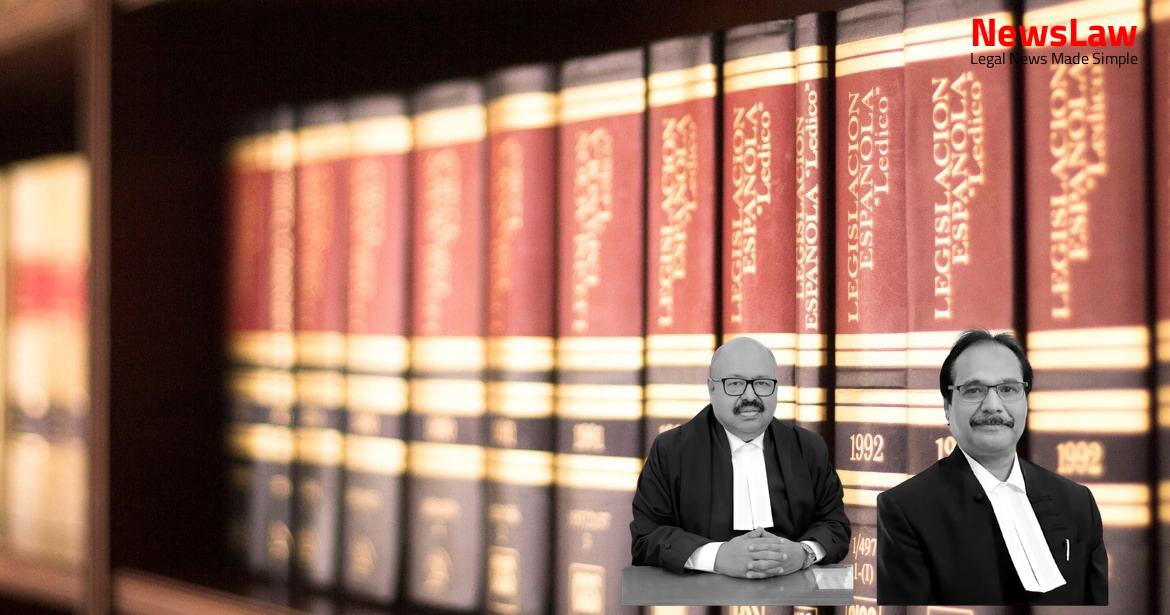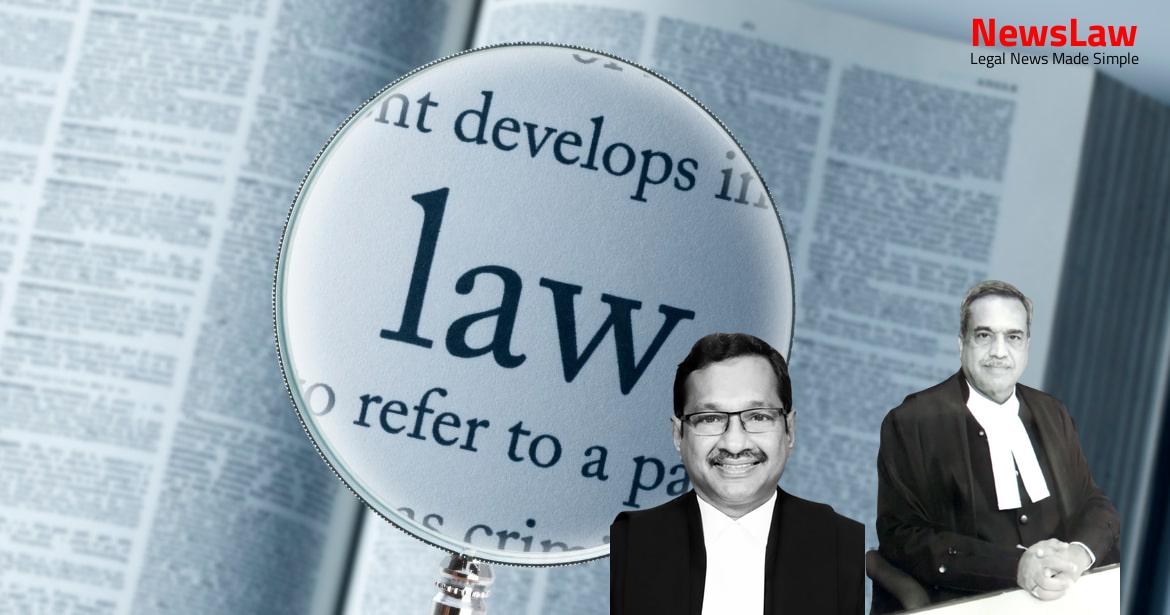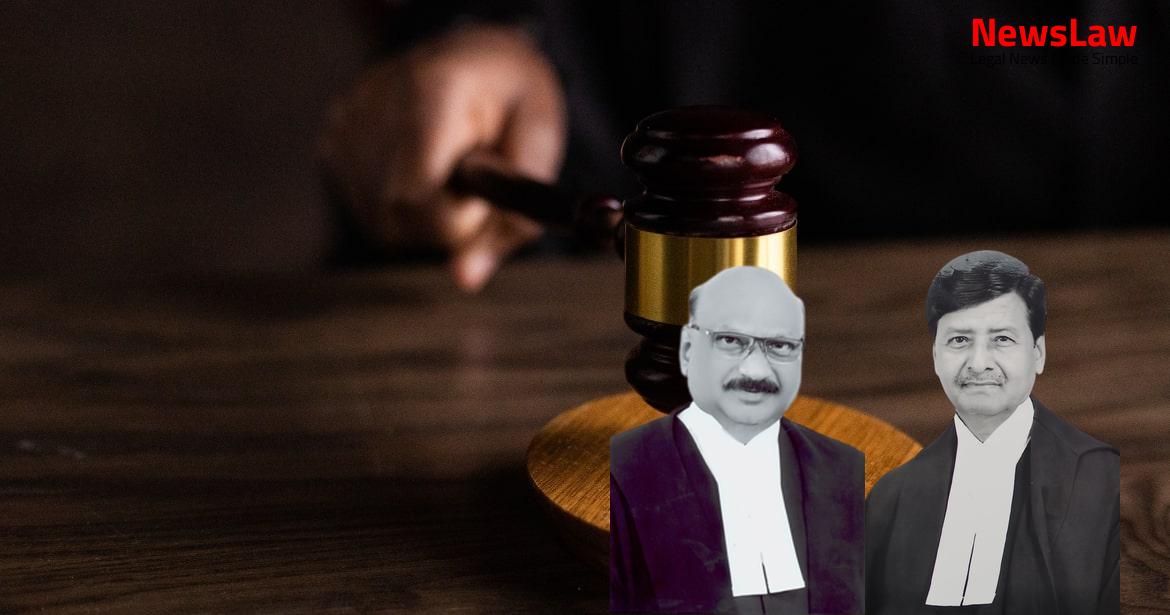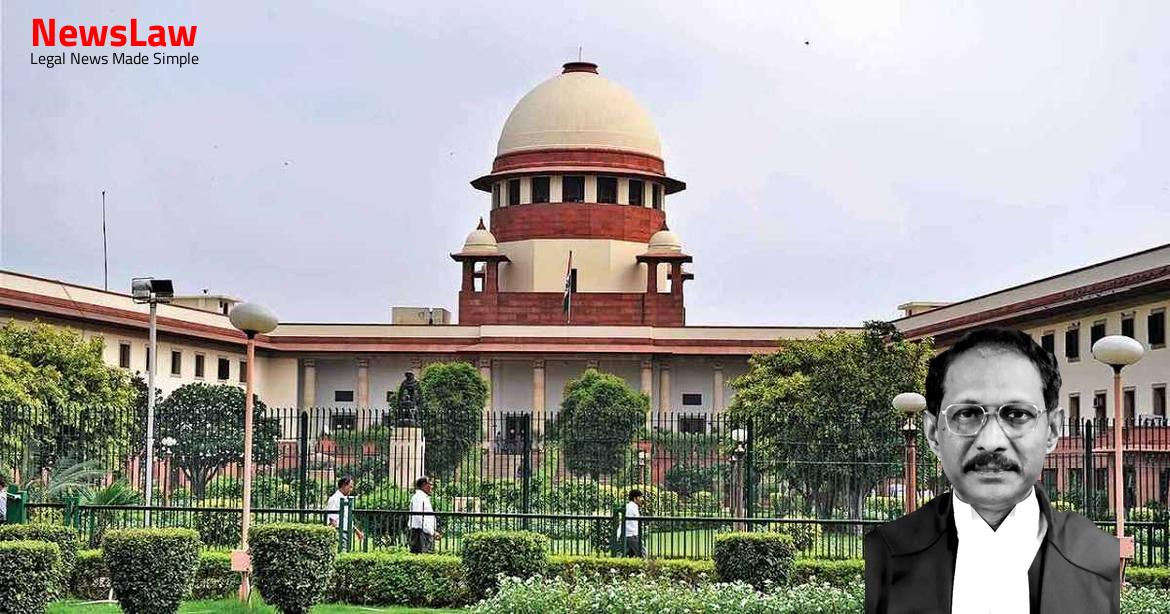In a significant legal battle between Dhruv Agrawal and Gagan Gupta, the Supreme Court of India has passed a verdict upholding the Trial Court’s judgment. The case delves into specific performance of agreements and the role of power of attorney in legal proceedings. Stay tuned for more insights on this crucial legal matter involving Dhruv Agrawal and Gagan Gupta.
Facts
- The appellant/plaintiff entered into an agreement to sell with respondent no. 4 for the purchase of land.
- Various payments were made by the appellant/plaintiff towards the purchase of the land.
- Multiple agreements were made to extend the execution of the sale deed, with the final date mentioned as 31.05.1997.
- The respondent/defendant no. 1 executed the sale deed behind the back of the appellant/plaintiff on 14.05.1997.
- Legal notice was sent to the respondents to be present at the Registrar’s office on 31.05.1997 for the sale deed formalities.
- Despite receiving the notice, the respondents did not attend the Registrar office, and the land was sold to other parties.
- The appellant/plaintiff objected to the mutation application by the new purchasers as he claimed possession of the land.
- Assurances were made by the Gram Panchayat that the new purchasers would execute a sale deed in favor of the appellant/plaintiff.
- The suit was filed on 19.06.2000 by the appellant/plaintiff.
- The Trial Court decreed the suit based on the execution of the agreement to sell between the appellant/plaintiff and defendant no. 1 as a Power of Attorney Holder of defendant nos. 2 to 11.
- Non-examination of the appellant/plaintiff as a witness did not have any adverse impact on the plaintiff’s case.
- The High Court allowed the appeal of respondent nos. 1 to 3/defendant nos. 12 to 14, setting aside the Trial Court’s judgment and decree, and dismissing the appellant/plaintiff’s suit.
- The Trial Court found that the time for execution of the sale deed was extended twice and earnest money was paid, indicating the appellant/plaintiff’s readiness and willingness to perform the contract.
- The suit was not barred by limitation as the extended time for registration of the sale deed was till 31.05.1997 and the suit was filed on or before 30.05.2000.
Also Read: Judgment of Supreme Court on Petition by Har Kaur against Defendants Regarding Will Authenticity
Arguments
- Mr. Dhruv Agrawal, representing the appellant, argues that the High Court made a serious error in setting aside the Trial Court’s judgment and decree.
- He states that the non-appearance of the appellant as a witness should not impact the suit as readiness and willingness can be proven by the Attorney Holder.
- Mr. Gagan Gupta, representing the respondents, counters by stating that the Power of Attorney Holder should be allowed to depose in a civil suit on behalf of the plaintiff.
- He asserts that the execution of the sale agreement by defendant no. 1 as a Power of Attorney Holder of defendants 2 to 11 was proven, and the appellant had fulfilled requirements by paying earnest money and filing the suit on time.
- Additionally, it is argued that the agreement is not void as defendant no. 1 acted as the Power of Attorney Holder of defendants 2 to 11 and that the suit land owners did not need to sign the agreement individually.
- Furthermore, in a specific performance suit, the non-appearance of the plaintiff as a witness is considered fatal as the plaintiff must plead and prove readiness and willingness.
- The appellant/plaintiff claims that the defendant no. 1 was not the sole owner of the coparcenary property and the other coparceners did not sign the initial agreement.
- The appellant/plaintiff argues that the Power of Attorney Holder’s testimony cannot be considered as the plaintiff’s statement in the civil suit due to the plaintiff’s absence in the witness box.
- The initial agreement was executed by defendant no. 1 only, not as the Attorney Holder of the other defendants.
- Reference to Section 12 of the Specific Relief Act is made, suggesting enforcement of the arbitration agreement and award to the extent of the share of two brothers.
- The application of Section 12 of the Specific Relief Act is deemed irrelevant in this case as the sisters, who are also co-owners, did not sign the agreement.
- The High Court found that all co-owners did not sign the agreement as required.
- The agreement states that defendant no. 1 would be responsible for getting the sale deed executed and registered by all co-owners, but not all co-owners’ names are mentioned in the agreement.
- The High Court’s decision is supported by the fact that the subsequent endorsement of an additional amount was not signed by all co-owners.
Also Read: Dhanraj v. Shamabai Dhanraj Gugale: Restitution in Legal Proceedings
Analysis
- The power-of-attorney holder can depose for the principal only in respect of acts done by the holder and not the principal.
- If the attorney holder has personal knowledge of transactions and acts, they should be examined to prove them.
- A plaintiff cannot have their attorney holder provide evidence if the holder lacks personal knowledge of the transactions.
- In cases of joint inheritance, all co-owners must be parties to sale agreements or partitions.
- Failure to establish independent income or contribution to property purchase can impact ownership rights.
- A suit for specific performance should be filed within the agreed time limits despite the general limitation period.
- Evidence provided by attorney-holders must be directly related to transactions they handled.
- There is an exception where the attorney-holder can provide evidence for matters involving the principal’s state of mind or conduct.
- If the principal does not testify, a presumption may arise that their case is not accurate.
- In the case of Janki Vashdeo Bhojwani vs Indusind Bank Ltd., it was held that a Power of Attorney Holder cannot depose for the principal in matters only the principal can have personal knowledge of and in which the principal is liable to be cross-examined.
- A Constitution Bench of the Court in Chand Rani v. Kamal Rani held that the discretion vested in the court by Sections 10 and 20 should not be denied.
- In the case of Shambhu Dutt Shastri v. State of Rajasthan, it was ruled that a general power-of-attorney holder can act on behalf of the party but cannot become a witness for the party.
- In the matter of Azhar Sultana vs B. Rajamani, it was established that a general power-of-attorney holder can appear, plead, and act on behalf of the party but cannot become a witness on behalf of the party.
- The court in Humberto Luis v. Floriano Armando Luis held that the provisions of Order 3 Rule 2 CPC do not disentitle the power-of-attorney holder to depose on behalf of the principal.
- In the case of Shanmughasundaram & Ors. Vs. Diravia Nadar, it was established that if all the co-sharers of a property have not executed a sale agreement, a suit for specific performance cannot be decreed.
- It was reiterated that time is not necessarily of the essence of a contract for sale concerning immovable property unless specifically stated.
- In suits for specific performance, the plaintiff must prove a valid agreement, breach by the defendant, and readiness and willingness to perform their part of the contract.
- The court emphasized that a Power of Attorney Holder cannot depose in place of the plaintiff in suits for specific performance.
- Failure to file a suit promptly after breach or refusal can lead to the court frowning upon the delay and may impact the entitlement to specific performance.
- The attorney-holder can be examined as a witness for any acts or transactions conducted based on the power of attorney granted by the principal.
Also Read: Husband’s Potentiality Test Ordered in Divorce Case: Sharda vs Dharmpal
Decision
- The judgment and decree dated 01.09.2016 passed in FA No 340 of 2003 by the High Court has been upheld.
- The appeal lacks substance and is dismissed.
- The parties are directed to bear their own costs.
Case Title: RAJESH KUMAR Vs. ANAND KUMAR (2024 INSC 444)
Case Number: C.A. No.-007840-007840 – 2023



